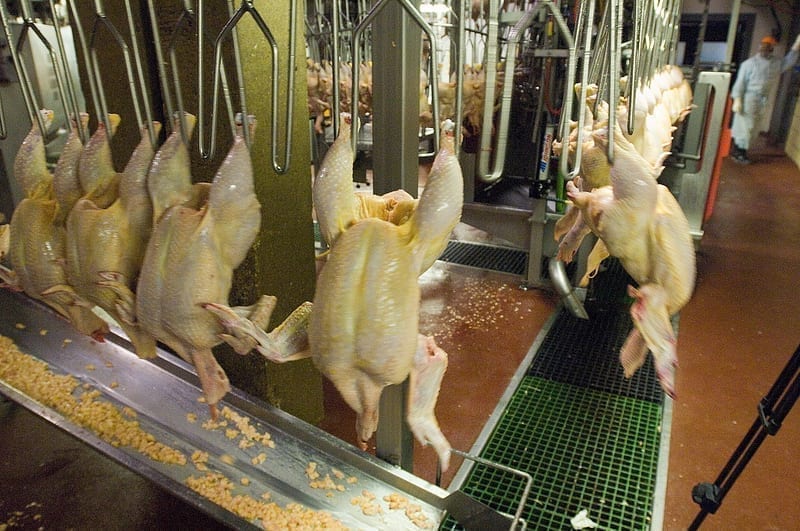Accused addicts working for free and healthy people locked up for insurance payments are only some of the prisoners for profit in the capitalist system.
The popular Economics 101 version of a free market economy goes something like this: hardworking people, of their own free will and with a desire for profit and win/win exchanges, find other people offering products or services they want, and make a deal that benefits everyone, including the rest of us as indirect beneficiaries of the unfettered innovation, prosperity, and personal freedom that such a market brings about. Market competition means that every player strives to create a better product at a better price, and only those who create value reap a profit. In the sort of perfect world that exists only in the mind of idealistic libertarians, the market works that well. The rest of us understand that reality doesn’t happen quite that way. Instead, our world is messy, and perverse incentives create private gains at public cost. One such mess is created when companies keep prisoners for profit.
News broke last month about CAAIR (Christian Alcoholics & Addicts in Recovery), the group that makes its money by convincing local courts to send them defendants with substance abuse problems, so that CAAIR could use them as prisoners for profit in chicken processing plants for free while pocketing their pay – and their worker’s comp claims when unsafe working conditions resulted in injuries. A combination of hard religion, hard work, and soft oversight allowed them to leverage their troubled wards’ fear and forced labor under the radar for years.

When state lawmakers finally probed into their dealings and decided to crack down, though, someone stepped in to keep the machine running. Republican Doug Cox, who simultaneously sat on CAAIR’s board of directors while making laws in Oklahoma, acted fast to prevent too much regulation of programs like CAAIR. Cox overlooked the ethical and legal requirement for Oklahoma’s House members to be open about their personal interests in matters they legislated, or to refrain from voting on such matters. Whether his behavior makes him a villain or a hero in this context will probably be decided by the reader’s own moral code.
CAAIR isn’t the only group that managed a stable of prisoners for profit. Arkansas State Senate Majority Leader Jim Hendren, a Republican from their 2nd district, also runs Hendren Plastics. According to a local news story from 2011, Hendren employed about 50 people at his plastic factory, at least 20 of whom were provided by DARP (Drug and Alcohol Recovery Program), the model that inspired CAAIR. Although the factory is full of noxious fumes, splattering hot plastic leaves blisters and burns on the workers, and the DARP workers aren’t paid (their wages are pocketed by DARP), fear of prison keeps the workers quiet and complacent. In theory, their wages pay for their upkeep and recovery programs, but such programs offer little actual treatment for addiction while allowing people like Hendren to brag about being “job creators.”
However, coerced labor isn’t the only way that companies make money by denying people their freedom. Sometimes just being there is all that matters. When Universal Health Services, America’s largest psychiatric hospital chain, came under investigation, Rosalind Adams wanted to know why. The BuzzFeed reporter spent months calling every person connected to UHS that she could find, from executives to people who left Yelp reviews. What she found was massively unethical. UHS allegedly committed patients who didn’t actually need psychiatric care, locking them up as prisoners for profit while charging their insurance the maximum possible fees. UHS denies everything, of course, but unlike in Oklahoma where lawmakers averted their eyes from programs like CAAIR, Adams’ reporting led to Senator Charles Grassley (R-Iowa) asking UHS some hard questions.
In a market economy, though, coercion doesn’t necessarily require such blatant shackles. When you depend on money and the market to obtain almost everything you need to live, economic need can create prisoners for profit, such as workers who, desperate for jobs, work in dangerous conditions like those at chicken processing plants, unable to leave for something better. Even more insidious are the companies that make and sell harmful products, taking our money but keeping us in the dark about safety violations, perhaps because fixing the problems (or losing customers who don’t particularly want to injure themselves) would eat into profits. In a perfect world, the EPA would stand up to polluting companies, instead of relying on science board members who opine that America’s air is currently too clean, and that children should inhale more irritants for the salient effect on their little immune systems (how convenient for polluters!). No, in this imperfect world, when capitalists, running out of ideas, must innovate ever more outrageous ways to shift their costs onto our backs instead, we are all prisoners for profit.
Related: The Moral Justification of Capitalism


Join the conversation!